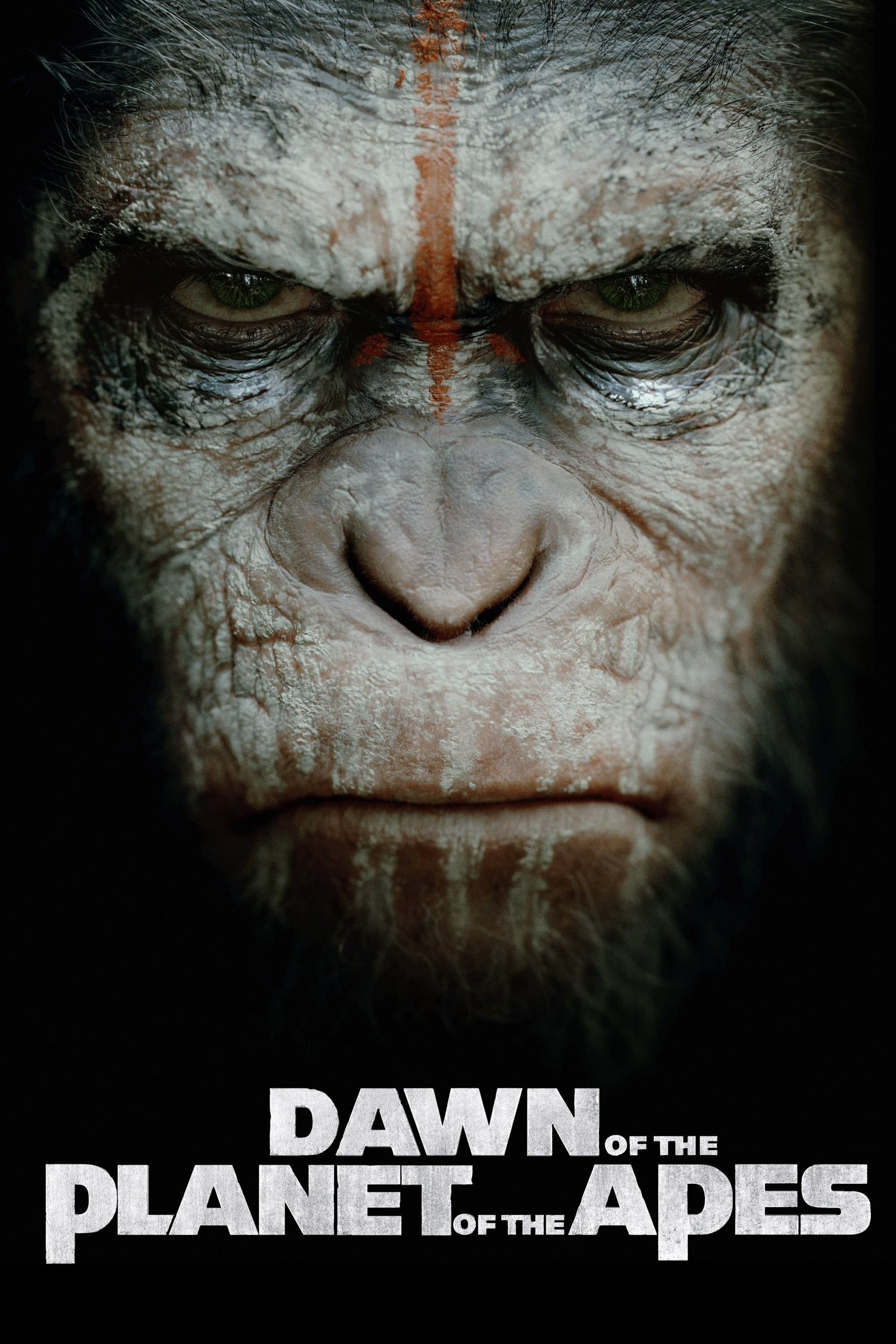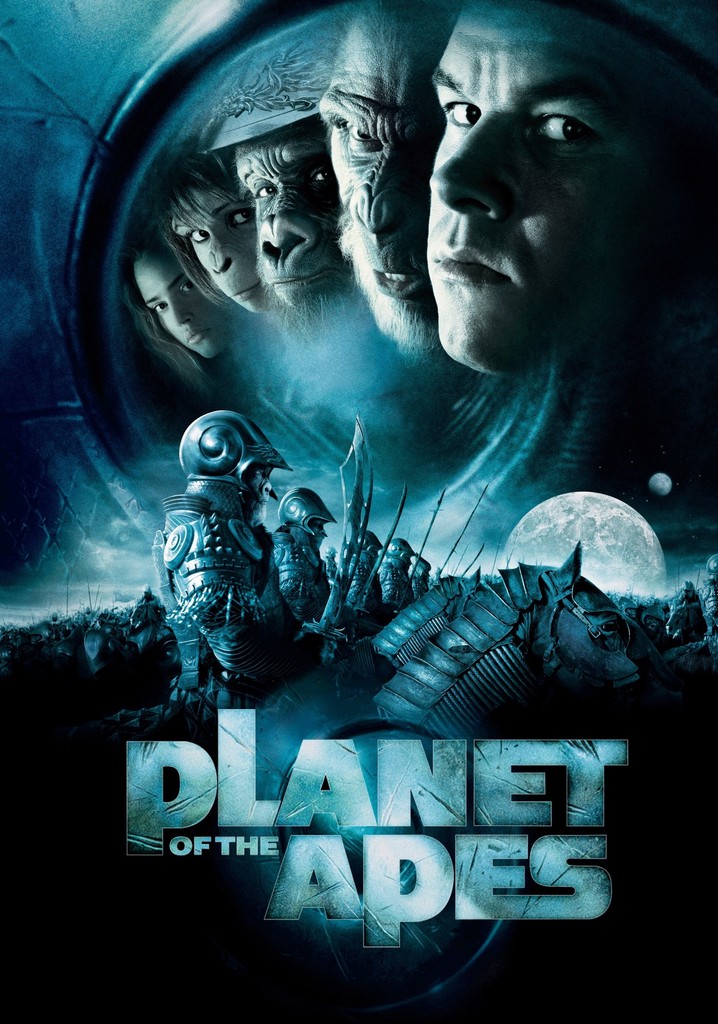How Should I Watch Planet Of The Apes: A Complete Guide For Fans
Are you ready to dive into the thrilling world of the Planet of the Apes series? This iconic franchise has captivated audiences for decades with its thought-provoking storylines and groundbreaking special effects. Whether you're a long-time fan or a newcomer, watching the series in the right order can enhance your experience and deepen your understanding of the narrative.
Planet of the Apes is more than just a series of movies; it's a cultural phenomenon that explores themes such as humanity, evolution, and the consequences of our actions. The franchise spans multiple decades, with various reboots and sequels, making it essential to know the correct order to watch them.
In this comprehensive guide, we will explore the best way to watch the Planet of the Apes series, including its original films, modern reboots, and spin-offs. By the end, you'll have a clear roadmap to enjoy the entire saga in a way that maximizes your enjoyment and appreciation of this legendary franchise.
- What Celebrity Has Died Recently
- The Monsters Eric And Lyle
- What Happened To Cheryl Burke
- Drew Carey In The Marine Corps
- That Is 70s Show
Table of Contents
The History of Planet of the Apes
The Original Planet of the Apes Series
- Capricorn Man Obsessed With Scorpio Woman
- Phil Collins Youll Be In My Heart
- Ending Of The Sopranos Explained
- The Big Bang Theory Tv Show
- Taylor Swift And Boyfriend
Modern Reboots: Rise of the Planet of the Apes
How Should I Watch Planet of the Apes?
Key Characters in the Planet of the Apes Series
Exploring the Themes of Planet of the Apes
Spin-offs and Extended Universe
The History of Planet of the Apes
The Planet of the Apes saga began in 1963 with the publication of Pierre Boulle's novel, "La Planète des Singes" (translated as "Monkey Planet"). This French science fiction novel laid the foundation for what would become one of the most enduring franchises in cinematic history.
In 1968, the novel was adapted into a film titled "Planet of the Apes," directed by Franklin J. Schaffner and starring Charlton Heston. The movie was a critical and commercial success, spawning multiple sequels and reboots over the years.
Planet of the Apes has since evolved into a multimedia franchise, including films, television series, comics, and video games. Its ability to adapt and reinvent itself has kept it relevant for generations of fans.
The Original Planet of the Apes Series
Overview of the Original Films
The original Planet of the Apes series consists of five films released between 1968 and 1973. These films introduced audiences to a world where intelligent apes dominate and humans are subjugated. Here's a brief overview of each film:
- Planet of the Apes (1968): Astronauts land on a distant planet ruled by apes, where they discover humanity's dark future.
- Beneath the Planet of the Apes (1970): A follow-up that delves deeper into the planet's mysteries, including a hidden civilization of telepathic mutants.
- Escape from the Planet of the Apes (1971): The story shifts to Earth as three apes from the future escape to the present day, causing a ripple effect.
- Conquest of the Planet of the Apes (1972): Set in a dystopian future, this film explores the rise of ape rebellion against their human oppressors.
- Battle for the Planet of the Apes (1973): The final chapter of the original series, focusing on the aftermath of the ape revolution and the struggle for peace.
Each film builds upon the previous one, creating a cohesive narrative that explores the consequences of human hubris and the potential for evolution.
Modern Reboots: Rise of the Planet of the Apes
A New Beginning
In 2011, the franchise was rebooted with "Rise of the Planet of the Apes," directed by Rupert Wyatt. This film serves as a prequel to the original series, focusing on the origins of Caesar, a genetically enhanced chimpanzee, and the events leading to the ape uprising.
The reboot trilogy includes:
- Rise of the Planet of the Apes (2011): The origin story of Caesar and the beginnings of the simian flu.
- Dawn of the Planet of the Apes (2014): Set ten years after the events of the first film, this installment explores the fragile coexistence between humans and apes.
- War for the Planet of the Apes (2017): The final chapter of the trilogy, focusing on the escalating conflict between the two species.
These films utilize cutting-edge motion capture technology to bring the apes to life, earning widespread acclaim for their visual effects and storytelling.
How Should I Watch Planet of the Apes?
Chronological Order
For those who prefer to experience the story in the order it unfolds, watching the films chronologically can provide a deeper understanding of the timeline. Here's the recommended chronological order:
- Rise of the Planet of the Apes (2011)
- Dawn of the Planet of the Apes (2014)
- War for the Planet of the Apes (2017)
- Planet of the Apes (1968)
- Beneath the Planet of the Apes (1970)
- Escape from the Planet of the Apes (1971)
- Conquest of the Planet of the Apes (1972)
- Battle for the Planet of the Apes (1973)
This order allows you to witness the full evolution of the story, from Caesar's rise to power to the eventual apocalypse.
Release Order
If you prefer to experience the films as they were originally released, here's the order:
- Planet of the Apes (1968)
- Beneath the Planet of the Apes (1970)
- Escape from the Planet of the Apes (1971)
- Conquest of the Planet of the Apes (1972)
- Battle for the Planet of the Apes (1973)
- Rise of the Planet of the Apes (2011)
- Dawn of the Planet of the Apes (2014)
- War for the Planet of the Apes (2017)
This approach allows you to appreciate the evolution of the franchise over time, from its groundbreaking debut to its modern reimagining.
Key Characters in the Planet of the Apes Series
Caesar
Caesar is one of the most iconic characters in the franchise, serving as the leader of the apes in both the original and reboot series. His journey from a genetically enhanced chimpanzee to a revolutionary figure is central to the story.
Charlton Heston as Taylor
In the original series, Charlton Heston's portrayal of Taylor, the astronaut who lands on the planet ruled by apes, remains a defining moment in cinematic history. His performance brought depth and intensity to the role.
Other notable characters include:
- Cornelius and Zira: Apes from the original series who play crucial roles in shaping the timeline.
- Koba: A bitter and vengeful ape in the reboot series who challenges Caesar's leadership.
Exploring the Themes of Planet of the Apes
The Planet of the Apes series is renowned for its exploration of complex themes, including:
- Humanity and Evolution: The franchise questions what it means to be human and the potential for evolution to alter the balance of power.
- Power and Oppression: The dynamic between humans and apes serves as a metaphor for real-world issues of power, oppression, and resistance.
- Consequences of Technology: The simian flu and genetic experimentation highlight the dangers of unchecked scientific advancement.
These themes resonate with audiences across generations, making the franchise relevant and thought-provoking.
Spin-offs and Extended Universe
Television Series
Several television series have been produced as part of the Planet of the Apes universe, including:
- Return to the Planet of the Apes (1975): An animated series that revisits the original films' storyline.
- Planet of the Apes (1974): A live-action series that aired for one season, expanding on the original films' universe.
These spin-offs offer fans additional opportunities to explore the world of the apes.
Critical Acclaim and Legacy
The Planet of the Apes franchise has received widespread critical acclaim for its innovative storytelling and groundbreaking special effects. The reboot trilogy, in particular, has been praised for its use of motion capture technology and its nuanced portrayal of ape characters.
The franchise has left an indelible mark on popular culture, influencing countless films and television shows. Its exploration of themes such as humanity, evolution, and the consequences of technology continues to resonate with audiences worldwide.
Frequently Asked Questions
What is the best order to watch Planet of the Apes?
For a comprehensive experience, watch the films in chronological order, starting with the reboot trilogy and ending with the original series.
Is the Planet of the Apes franchise worth watching?
Absolutely! The franchise offers a blend of thrilling action, thought-provoking themes, and unforgettable characters that make it a must-watch for sci-fi fans.
Conclusion
In conclusion, the Planet of the Apes franchise is a cinematic masterpiece that continues to captivate audiences with its compelling storylines and groundbreaking visuals. Whether you choose to watch the films in chronological or release order, you're in for an unforgettable journey through a world where apes rule and humans strive to reclaim their place.
We invite you to share your thoughts and experiences in the comments below. Have you watched the entire series? What did you think? Don't forget to explore our other articles for more insights into the world of science fiction and beyond!
Article Recommendations
- Is Stranger Things Over
- Titanic Ocean Heart Necklace
- Tyla Place Of Birth
- Who Is Khloes Father
- Sabrina Carpenter Please Please Please



Detail Author:
- Name : Prof. Lue Veum I
- Username : monserrate.kub
- Email : reid33@bednar.com
- Birthdate : 1981-11-11
- Address : 964 Wolf Creek North Jayson, VA 72884
- Phone : 559.645.8083
- Company : Bruen LLC
- Job : Stone Cutter
- Bio : Quo ratione occaecati doloremque sit. Vitae voluptatum quo iure nisi corrupti iure vero. Excepturi quia illum quia ab reprehenderit.
Socials
linkedin:
- url : https://linkedin.com/in/rosiefunk
- username : rosiefunk
- bio : Assumenda rerum error eum qui dolor error.
- followers : 4930
- following : 835
facebook:
- url : https://facebook.com/funk1975
- username : funk1975
- bio : Id sint cupiditate quis et facere dolorum maiores.
- followers : 3261
- following : 983